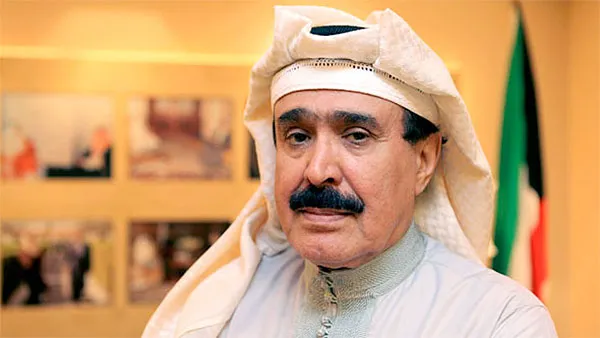25/05/2024
25/05/2024
THERE are some people who remain oblivious to the changing times. They are stuck in the past, and consequently, their expectations often lead to disappointment. Among such people are those who firmly believe that the latest measures of the new era will lead to a stronger repetition of the events that occurred in the 1980s. However, there is no doubt that their assumptions are based on illusions. What transpired was a popular demand before it became a government initiative.

The government responded by restoring the state’s prestige and finding a way out of the impasse created by the group that claims to venerate the Constitution, for reasons now evident to all. Today, things are different from what they were in the 70s and 80s.
The Arab world was seething with unrest and coups, and political movements were searching for a foothold in various countries. This is why the internal conflicts in nations had escalated. This includes Kuwait, where the conflict over interests between the Islamic and nationalist movements was intense, and national security was absent from their considerations. That is why the defunct Iraqi regime found a loophole that made it appear as though it could swallow Kuwait, and hence the 1990 invasion occurred.
Today, more than 40 years after those events and 33 years since liberation, Kuwaitis are convinced that any reckless adventure could jeopardize their national destiny. They have thus committed to unity, regardless of the cost. The devastation seen during the “Arab Spring” in Tunisia, Libya, Syria, Yemen, and Iraq, as well as other affected countries, serves as a reminder of the wounds Kuwaitis continue to endure. Particularly notable were the events witnessed during the so-called “Dignity of the Nation” demonstrations, including the attacks on security forces, which extended beyond mere harm to the prestige of the head of state.
It is known in political science that a corrupt state is better than no state, that reform cannot take place overnight, and that painful measures are necessary in such cases. The people in recent years have suffered a lot of injustice caused by wrong choices of representatives of the nation. The least that can be said about them is that they disappointed the voters. It is not possible to dissolve five parliamentary assemblies within a period of ten years.
The entire state was paralyzed due to suspicious demands hemmed in by the religious movement, which has taken over “the thread and the needle”. During that period, Kuwait turned into something like a quarantined plague patient. They hence closed the country and erased everything beautiful, starting with theater, arts and culture, and ending with education, which they changed according to their deviant vision that must end in the destruction of society, and contradicts the nature of the faithful and tolerant Kuwaiti people who seek pioneership in everything. They worked to exploit everything for their personal interests, from roads and services to development projects, and divided the cake of public wealth in broad daylight through intolerable corruption.
In fact, they sought in a systematic way, to make Kuwait a failed state, similar to the countries that are plagued by groups whose only interest is to take over their country’s capabilities. In their delusion, these individuals went as far as to undermine the authority of the Amir and attempted to interfere with the judiciary. This led to widespread calls in the press and on social media for a resolution to the matter, even if it meant resorting to a drastic measure akin to a surgical intervention
However, when the state was run by a firm leader who put his country’s interests ahead of any other interests and knew well the path to good governance, he met the demands of his people. We have therefore started witnessing the disappearance of important names that wreaked havoc and intrigue among the people, and had been working on undermining the prestige of governance. Kuwaiti people, like any people, desire an effective and strong state.
This is only possible when there is a leader at the head of the state who works on the renaissance of his country. Therefore, we emphasize that true leadership and a return to the correct course can only be achieved through one man who knows his way. This is why the people today are waiting for signs of the realization of promises outlined in the roadmap by their astute leader. The Council of Ministers, in turn, must act in the best interests of both the Head of State and the people.
By Ahmed Al-Jarallah
Editor-in-Chief, the Arab Times
[email protected]


